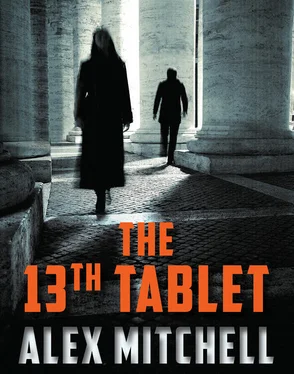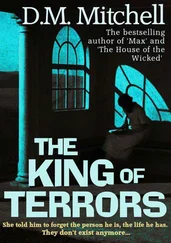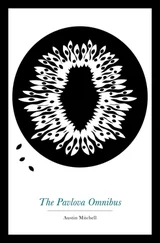Life was a strange commodity these days. The war-torn country was on the brink of collapse, but Hassan seemed to breeze through all the horror. He had been brought up by a tough father and a doting mother and had quickly learned how to survive in a place that could be a war zone on Monday, a Green zone on Tuesday, and a survival zone the rest of the week. The constant sense of urgency made men either crumble or survive. War and its corollaries could bring out the brightest light or the darkest night in every person, but Hassan, like most people in the city, was focused on getting on with his day-to-day business.
The cafe owner gave Hassan a wink and nodded to a dishevelled man standing at the door. Hassan looked him over and waved him to approach. A year ago, he used to feel pity for the poor labourers who seemed out of their depth in the city. But in the last few months he had met so many of these poor souls, fumbling in their pockets, watching over their back, waiting for him to take a look at some ancient object that — without losing his kind nature entirely — he felt he had become more selfish and indifferent.
‘Are you Hassan?’ asked the hesitant man, whose weary eyes seemed older than the rest of him.
‘Yes I am.’
The man sat down.
‘Don’t worry so much,’ said Hassan affably. ‘I work for the university, not for the police.’
The old man looked up at Hassan with a crooked smile. ‘It’s so difficult to know who to trust. I used to work my own land, now I try to survive in the city. They took everything from me, except my wife and children whom I need to feed.’ He lingered on his last words to give them more meaning, but Hassan pretended not to notice.
‘I know. Believe me when I say I’ve got nothing to gain from our meeting, except the pleasure of doing my work, which is to collect and catalogue all these objects.’
It was a fixed dialogue, rehearsed a thousand times and Hassan knew how to keep the upper hand. This was pretty easy when the seller was desperate and the buyer picky about what to purchase.
‘Let’s go to the backroom for privacy,’ said Hassan, as if all he cared for was the labourer’s reputation. They walked through to the backroom and sat down side by side on a bench. The man reached into his tattered satchel and brought out a rectangular object, tightly wrapped in a rag. He opened it carefully and Hassan, who had identified the object straight away, rolled his eyes. Yet another clay tablet. He took it slowly, pretended to read the cuneiform writing and nodded appreciatively.
‘This is a very interesting tablet you’ve got here. I will take it to the university today. Thank you very much. You’ve done the right thing.’
The man looked embarrassed but was not leaving, so Hassan dug his hand in his pocket and gave him 30 US dollars. The man thanked him warmly and hurried away. Hassan turned over the object in his hands, he thought it was a little heavy for a clay tablet but did not make much more of it. He decided to call Bibuni right away.
‘Yes?’ asked a smooth, deep male voice.
‘Salam Aleikum Mr Bibuni. How are you?’ asked Hassan.
‘Aleikum Salam my boy. I’m well. I’ve been told someone came to see you.’
‘News travel fast,’ said Hassan, thinking back to the cafe owner who had been fiddling with a phone while he was sitting with the old labourer.
‘So, my boy?’ asked Bibuni, unwavering.
‘It’s a beautiful tablet, with cuneiform writing. I’m sure it’s an important text.’
‘Scoundrel! Only a few months in the business and already trying to hustle me. Look here Hassan, find me sculptures, gold or silverware, even bronze amulets, but keep your wretched clay tablets. No-one wants to buy this stuff and those who do are more trouble than they’re worth; before you know it, they show you an official UNESCO list of looted objects and refuse to pay up, or demand to see other tablets. You never hear the end of it.’
‘So what should I do with it then?’ asked Hassan.
‘What do I care!?’ Bibuni yelled down the phone. ‘Use it as a chopping block, a wall decoration, whatever you want but don’t try to pull that one on me again.’
‘Alright Mr Bibuni, I’m sorry.’
‘Have you got anything else?’
‘Nothing for a couple of days, but I’m sure something will crop up. Any chance of a small advance?’
‘Advance on what? Clay tablets? You must be joking. Call me when you’ve got something decent and I will give you all the advances you could want.’
The line went dead. Hassan took a deep breath, put the tablet in his bag and left the cafe.
Mina and the professor walked briskly through the University campus, both tightly wrapped in traditional woollen shawls. Soon enough, they arrived at a block of flats. Mosul was a strange city: it had seen 8000 years of history and yet today, much of it was a concrete sprawl. The old city kept its charm of course, with its old Abbasid houses and romantic, meandering streets but many academics tended to live just off the campus. It was close to their workplace, cheaper and more secure than other parts of Mosul.
As soon as they entered the professor’s flat, Mina recognised the mouth-watering smells of Mrs Almeini’s cooking. The old scholar was almost toppled over by his grandchildren, who rushed up to the door to greet him. Their son’s children often stayed with them during the day while their parents were at work. Both parents were interpreters for the US army and had a heavy workload. Mina always felt a pang in her heart when visiting the professor’s home; there was so much warmth. It was very different from her own home, where her parents were busy trying to be ‘American’ and her mother rarely prepared Mosuli food. Despite the run-down location, the Almeini’s flat was tastefully decorated. Mina knew that most of the silverware, rugs and paintings had come from another house, which the family had been forced to flee in an emergency. No-one ever talked about it. Mina suspected that the couple had had another daughter who died there but she had never found the courage to enquire about it.
The professor’s wife, a delightfully warm and feisty brunette, was always impeccably dressed and constantly tried to fatten her up, ‘You must eat more Mina,’ she said, ‘you seem so unhealthy.’ To this, Mina ritually answered, ‘I assure you, Mrs Almeini, I never felt better.’
Mina was always amazed by the old couple’s ways. Although Almeini was a modern academic, aware of the latest theoretical twists in scholarship, he still lived traditionally at home. Mina had tried a few times to ask Mrs Almeini about her own thoughts on a variety of subjects but the old woman never engaged in intellectual discussion. Mina could not figure out if it was because she could not, or if she considered it inappropriate to do so in her husband’s house.
After dinner, while they sipped tea and nibbled on small crunchy biscuits, the professor turned to Mina. ‘Tell me about your research, Mina. Have you made any progress?’
‘I have and I haven’t. I applied for a travel grant from Columbia, to pursue my PhD investigations in Israel.’
‘I guess it will be easier to get this grant than a visa for Israel.’
‘Ah Professor, you forget I’m American!’
‘True,’ he answered. ‘So, have you had any luck?’
‘I don’t know. Nigel hasn’t given me much hope on this front. I think he feels that I’ve dropped out of ‘his’ programme since I’ve come here.’
‘Would you like me to write to him?’
‘No, thank you Professor. I’m sure things will straighten themselves out when I send him some substantial chapters to read. Until then…’
‘Until then you’re on probation!’
They both laughed.
Читать дальше












